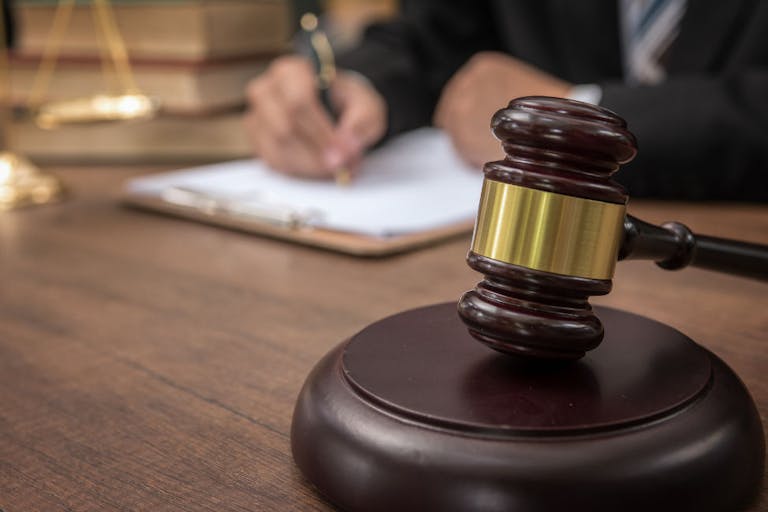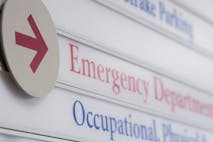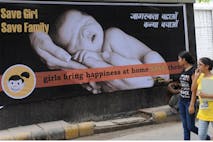
Smoke & Mirrors: Big Abortion claims 'junk science' threatens abortion pill
Carole Novielli
·We are urgently seeking 500 new Life Defenders (monthly supporters) before the end of October to help save babies from abortion 365 days a year. Your first gift as a Life Defender today will be 3X MATCHED. Click here to TRIPLE your monthly commitment.

Wyoming judge blocks several pro-life laws, including one targeting abortion pills
A Wyoming judge has placed a temporary injunction against a state law restricting off-label uses for medications, legislation put in place specifically to target mifepristone as part of the abortion pill regimen.
It is the third pro-life law this same judge has blocked so far this year.
In April, Judge Thomas T.C. Campbell temporarily blocked two laws; one required abortion facilities to be regulated as ambulatory surgical centers, while the other required an ultrasound before an abortion.
He now has ruled against state attorneys over HB 164, which bans the use of medication used off-label.
Attorneys for Wyoming had argued the statute was meant specifically for abortion, not for other medications.
Misoprostol, the second drug in the abortion pill regimen, was originally approved by the FDA to treat gastric ulcers.
Campbell issued an injunction against HB 164, siding with abortion activists who had challenged the law. Had Campbell not blocked it, the law would have taken effect this week.
Chelsea’s Fund, a pro-abortion organization, had added the law to an existing lawsuit, which challenged multiple abortion restrictions, including a law that protected most preborn children from abortion. Three of the laws are not temporarily blocked until a final decision is made by the courts on the lawsuit.
In his ruling, Campbell rejected the statements from Wyoming attorneys.
“To argue that the statute does not prohibit the off-label prescription of abortion-inducing drugs but merely permits off-label use for other indications, is a strained and untenable reading,” he wrote. “If the statute excludes abortion-related prescriptions from the safe harbor it creates, then it necessarily treats those prescriptions as not lawful under this provision.
“Suggesting that this exclusion simply ‘does not make it illegal’ but instead merely withholds new authorization is semantic hair-splitting; in practical terms, the statute draws a bright line between permissible off-label uses and those it aims to restrict, abortion among them,” Campbell continued. “For these reasons, the court cannot accept the State Defendants’ claim that the Wyoming Off-Label Protection Laws do not attempt to limit access to abortion medication when that is precisely what it does.”
In April, Campbell likewise ruled that several other pro-life laws would be temporarily blocked.
One of the rulings involved the requirement that women undergo an ultrasound before an abortion is allowed to be committed. Senior Assistant Attorney General John J. Woykovsky said this was an issue of informed consent, arguing, “Before a woman obtains a chemical abortion, she should have full information. And part of that information is an ability to visualize the fetus and the ability to hear the heartbeat.”
Campbell, however, disagreed, snarkily writing, “That a transvaginal ultrasound is necessary to obtain informed consent offends common sense.”
The issue of informed consent aside, ultrasounds are a regular part of the abortion process, particularly before an abortionist commits a surgical abortion. The abortionist must not only determine how far along in pregnancy the woman is so he knows what kind of abortion procedure to commit, but rule out an extrauterine pregnancy. Ultrasounds are often performed afterwards as well, to ensure the abortionist has not left any parts of the baby’s body inside the woman’s uterus.
The second ruling would have required abortion facilities to be licensed as ambulatory surgical facilities. This common-sense regulation is something the abortion industry has fought tooth and nail across the country, demanding that abortionists be treated as legitimate doctors without being held to any of the same standards.
What’s worse is that the specific standards being blocked in Wyoming — like hallways wide enough for gurneys to fit through and working elevators — are meant to ensure women’s safety in the case of an emergency.
Time and time again, women who have been the victims of botched abortions have not been able to receive emergency care in time, as paramedics struggle to reach them and cannot give them necessary care — like intubation — because there is no room for a gurney, or they have to carry a gurney up and down multiple flights of stairs because the elevator is not working.
This has led to multiple women’s deaths. On top of that, many abortion facilities have been known for failing inspections on a regular basis.
Hearings on all three laws will be heard later this summer. If a final decision upholds these laws, they will protect the lives of both women and their preborn children.
Live Action News is pro-life news and commentary from a pro-life perspective.
Contact editor@liveaction.org for questions, corrections, or if you are seeking permission to reprint any Live Action News content.
Guest Articles: To submit a guest article to Live Action News, email editor@liveaction.org with an attached Word document of 800-1000 words. Please also attach any photos relevant to your submission if applicable. If your submission is accepted for publication, you will be notified within three weeks. Guest articles are not compensated (see our Open License Agreement). Thank you for your interest in Live Action News!
Dear Reader,
Every day in America, more than 2,800 preborn babies lose their lives to abortion.
That number should break our hearts and move us to action.
Ending this tragedy requires daily commitment from people like you who refuse to stay silent.
Millions read Live Action News each month — imagine the impact if each of us took a stand for life 365 days a year.
Right now, we’re urgently seeking 500 new Life Defenders (monthly donors) to join us before the end of October. And thanks to a generous $250,000 matching grant, your first monthly gift will be 3X MATCHED to help save lives and build a culture that protects the preborn.
Will you become one of the 500 today? Click here now to become a Live Action Life Defender and have your first gift TRIPLED.
Together, we can end abortion and create a future where every child is cherished and every mother is supported.

Carole Novielli
·
Abortion Pill
Carole Novielli
·
Abortion Pill
Nancy Flanders
·
Abortion Pill
Bridget Sielicki
·
Guest Column
Clare Marie Merkowsky
·
Abortion Pill
Carole Novielli
·
Pop Culture
Cassy Cooke
·
Analysis
Cassy Cooke
·
Issues
Cassy Cooke
·
Analysis
Cassy Cooke
·
Human Rights
Cassy Cooke
·